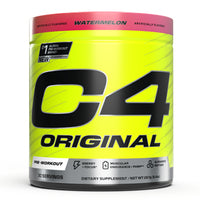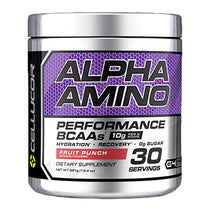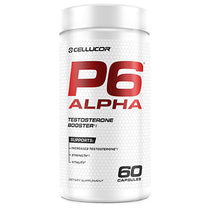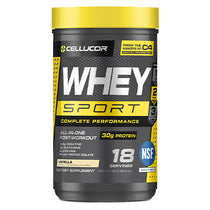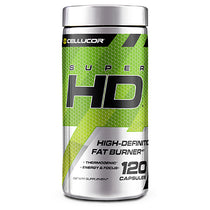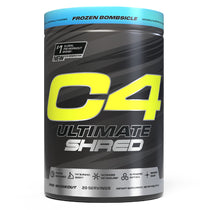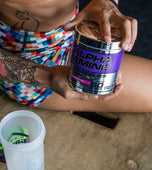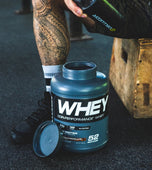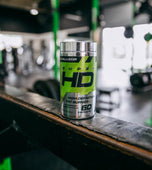In an ideal world, you’d be able to train as long as you wanted and never see a decline in effort, intensity, or power.
Unfortunately, the world isn’t ideal, and we each have a limit on how long our strength, power, and endurance last in a workout.
Some of us have more experience and deeper energy reserves than others, which is why some of you can handle those long training sessions in the gym.
But, for the rest of us that don’t have superhuman stamina, wouldn’t it be great if there was a supplement that could help us all workout long? You bet it would!
Lucky for you, such an ingredient exists, and it’s probably already in your favorite pre-workout.
It’s called beta-alanine, and this article explains everything you want to know about this popular ingredient.
What is Beta-Alanine?
Beta-alanine is a nonessential amino acid, meaning your body can create it from other amino acids and doesn’t have to obtain it from food as it must with essential amino acids.

What does Beta-Alanine do?
Your body primarily uses beta-alanine to synthesize another amino acid called carnosine, which is stored in the brain and muscles and helps reduce fatigue. Beta-alanine does this by combining with L-Histidine, one of the nine essential amino acids.
Benefits of Carnosine
One of the main roles of carnosine in our muscles is to maintain a stable pH level, which it does by regulating acidity.
When you’re exercising, muscles contract, and as a result, more and more acid accumulates in the muscle.
This build-up of acid impairs the ability of your muscles to keep contracting, and at some point, the muscle fails to contract any more[1], thereby causing you to end your training set.
Carnosine serves as an acid buffer and helps counteract this acid build-up, which increases the amount of work your muscles can do before they become fatigued.
Therefore, if we can increase the amount of carnosine in the muscle, we can have greater buffering capacity against acid build-up and be able to train longer, thus getting bigger, better gains.
However, in order to get those increased carnosine stores, you need beta-alanine.
Without adequate amounts of the nonessential amino acid, your body can’t produce carnosine efficiently, meaning your buffering capacity is limited, and as a result, so is your endurance and stamina.

Why Not Supplement with only Carnosine?
At this point, you might be wondering why you would need to supplement with beta-alanine at all. If carnosine is what we’re really after, why not just supplement with carnosine?
Carnosine isn’t absorbed all that well when supplemented orally. When it’s ingested, your body actually breaks it down into beta-alanine and histidine. Once those free form amino acids enter a muscle cell, your body then uses them to produce carnosine.
So, if you think about it, you’d essentially be supplementing with carnosine in order to get beta-alanine, which would subsequently be used to produce beta-alanine.
By supplementing with beta-alanine directly, you eliminate an unnecessary step in the process and help speed things up a bit.
Additionally, research has shown that supplementation with beta-alanine is incredibly effective for increasing muscle carnosine levels.[2]
Benefits of Beta-Alanine
Greater Endurance: The major benefit of beta-alanine comes from its ability to enhance your muscle endurance and stamina during training.
Numerous studies and a comprehensive meta-analysis have confirmed the ergogenic benefits of beta-alanine[3,4] noting it can lead to significant improvements in endurance when exercises last between 60-240 seconds.
This makes beta-alanine a must-have supplement if you use a lot of supersets, drop sets, forced sets during your resistance-training workouts. It’s also ideal if you like to do circuit-training and/or CrossFit-style workouts.

How does beta-alanine affect shorter duration sets lasting less than 60 seconds?
The data has shown that beta-alanine can benefit exercise performance lasting less than one minute (i.e. the length of a typical weight lifting set), but the results haven’t been statistically significant.
What about stacking Beta-Alanine and Creatine together?
Stacking beta-alanine with creatine has been proven to improve athletic performance in exercise lasting less than 60 seconds.
Increased Strength:
For a long time, it was believed that beta-alanine only helped boost endurance, but some new research has shown that it can actually enhance strength, too!
30 resistance-trained men were divided into two groups and either given beta-alanine or a placebo. At the end of the five-week study, the beta-alanine group had increased their squat strength by 19% (12% for the placebo).[5]
Supports Muscle Growth:
Building muscle requires you to constantly challenge your muscles to perform more work than they previously have. This provides the proper training stimulus they need to adapt, and in the presence of a caloric surplus, will lead to growth.
By improving your intra-workout stamina, beta-alanine allows you to train longer and harder, which helps you bang out those extra muscle-building reps, and get the gains you’ve always wanted. Research has even confirmed these findings, showing that beta-alanine does enhance muscle growth and reduce muscle fatigue.[6,7]
Beta-Alanine Dosage and How Much To Take
Between 3.2-6.4g per day, divided into 800-1600mg doses multiple times per day.
Side Effects of Beta-Alanine (The Tingles)
When consumed en masse -- you get paresthesia, a.k.a. the tingles.
You’ve experienced this first hand if you’ve ever taken a dose of beta-alanine greater than 2 grams and felt your lips, ears, or fingertips tingling. The paresthesia is harmless, and will eventually go away once you reach saturation.
Additionally, some people may not experience any tingles at all, as the reaction varies greatly from one person to another.
One other reason for the divided dosing protocol is that it helps improve absorption and avoids over-saturating the uptake receptors in the body.
CarnoSyn® Beta-Alanine
The supplement industry is filled with wannabes and pretender ingredients that talk a big game, but when the chips are down, they always come up short.
CarnoSyn® Beta-Alanine is the premier form of beta-alanine, tested for quality, purity, and potency. It’s also the form proven effective in research showing the ergogenic benefits of beta-alanine.
Beta-alanine is one of the few proven commodities in pre-workout supplements that deliver the goods, and that’s why C4 proudly uses it in every serving.

References
- Ament, W., & Verkerke, G. J. (2009). Exercise and fatigue. Sports Medicine (Auckland, N.Z.), 39(5), 389–422.
- Hoffman JR, Landau G, Stout JR, et al. β-Alanine ingestion increases muscle carnosine content and combat specific performance in soldiers. Amino Acids. 2015;47(3):627-636. https://doi.org/10.1007/s00726-014-1896-7.
- Hobson RM, Saunders B, Ball G, Harris RC, Sale C. Effects of β-alanine supplementation on exercise performance: a meta-analysis. Amino Acids. 2012;43(1):25-37. https://doi.org/10.1007/s00726-011-1200-z.
- Saunders, B., Elliott-Sale, K., Artioli, G. G., Swinton, P. A., Dolan, E., Roschel, H., … Gualano, B. (2017). β-alanine supplementation to improve exercise capacity and performance: a systematic review and meta-analysis. British Journal of Sports Medicine, 51(8), 658 LP-669. Retrieved from http://bjsm.bmj.com/content/51/8/658.abstract
- Maté-Muñoz, J. L., Lougedo, J. H., Garnacho-Castaño, M. V, Veiga-Herreros, P., Lozano-Estevan, M. del C., García-Fernández, P., Domínguez, R. (2018). Effects of $β$-alanine supplementation during a 5-week strength training program: a randomized, controlled study. Journal of the International Society of Sports Nutrition, 15(1), 19. https://doi.org/10.1186/s12970-018-0224-0
- Walter, A. A., Smith, A. E., Kendall, K. L., Stout, J. R., & Cramer, J. T. (2010). Six weeks of high-intensity interval training with and without beta-alanine supplementation for improving cardiovascular fitness in women. Journal of Strength and Conditioning Research, 24(5), 1199–1207. https://doi.org/10.1519/JSC.0b013e3181d82f8b
- Smith AE, Walter AA, Graef JL, et al. Effects of β-alanine supplementation and high-intensity interval training on endurance performance and body composition in men; a double-blind trial. Journal of the International Society of Sports Nutrition. 2009;6:5. https://doi.org/10.1186/1550-2783-6-5.
- Harris, R. C., Tallon, M. J., Dunnett, M., Boobis, L., Coakley, J., Kim, H. J., … Wise, J. A. (2006). The absorption of orally supplied beta-alanine and its effect on muscle carnosine synthesis in human vastus lateralis. Amino Acids, 30(3), 279–289. https://doi.org/10.1007/s00726-006-0299-9 9. 10.
